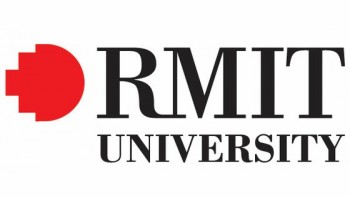Innovative digital transformation is answer to future-proofing businesses
A new minor in Technology and Innovation is being offered through RMIT’s Master of Business Administration (MBA) program to help businesses adapt to the rapid changes in digital technology and the global economic environment.
RMIT Senior Program Manager of the MBA, Dr Burkhard Schrage said that businesses with digital capabilities, disciplined leadership and fast execution skills will move ahead during challenging economic times.
“We still don’t know what the ‘next normal’ will look like, but we do know it will be more digital, more agile, more resilient and feature a more flexible workforce,” he said.
“Business leaders should be creating a vision of the post-pandemic world and implementing strategies to achieve this vision, using cutting-edge skills and digital capabilities to lead their company to the next phase of growth.”
However, a recent study of Vietnam-based businesses conducted by RMIT researchers from the School of Business and Management and KPMG Vietnam, revealed that many businesses in Vietnam lacked the leadership ability to drive innovation, leading to many digital transformation projects failing.
The new minor has been developed to address this issue, through a collaboration with the University’s School of Business and Management and Centre of Digital Excellence (CODE).
The four subjects include: Digital Innovation; Digital Entrepreneurship; Technology Futures; and Digital Risk Management and Information Security.
Head of CODE, Associate Professor Jerry Watkins, said the new minor will integrate digital technology within the curriculum and aim to familiarise managers with digital technology to encourage them to use it to provide innovative solutions.
“Within the Digital Entrepreneurship course alone, MBA student teams will learn how to program robots to simulate the use of automated vehicles to solve an emergency supply chain problem,” Associate Professor Watkins said.
“This exercise goes well beyond a tutorial in robotics programming. Teams must purchase supplies, build a model bridge, and program their robot to cross the bridge and deliver supplies.
“The idea is to show how the robot is part of a wider solution – it’s not just about the technology.”
RMIT MBA student, and senior manager of a software and automation company Daniel Amhoff, was part of a student team in the Digital Entrepreneurship course which developed an innovative approach to this supply chain problem.
“Our team brainstormed the problem and began to rapidly prototype while simultaneously monitoring which supplies were in highest demand, so that we could use the supply and demand driven price fluctuation to our advantage,” he said.
“The engineering minded members of the group delivered a functioning bridge, the tech minded members programmed the robot to navigate towards and across the bridge successfully, and the commercially minded entrepreneurial spirit helped us deliver the project on-time and well under budget.”
Mr Amhoff said it was a fun and competitive experiential way to learn about digital technologies, and entrepreneurial and business concepts.
“Design thinking, marketing, and finance principles have been core elements throughout the course, but the CODE team-building exercise also required us to be innovative and combine those core teachings with critical thinking to deliver a functioning robot and to pitch a convincing proof of concept to the lecturer and the class.”

